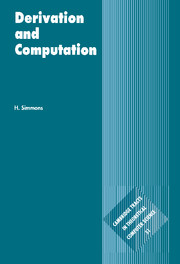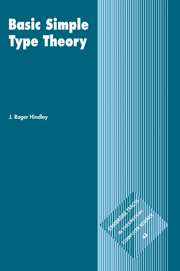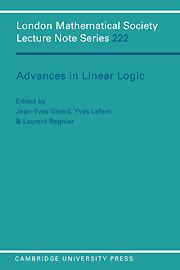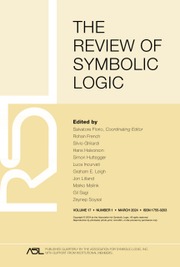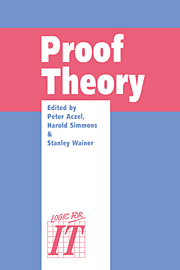Derivation and Computation
Mathematics is about proofs, that is the derivation of correct statements; and calculations, that is the production of results according to well-defined sets of rules. The two notions are intimately related. Proofs can involve calculations, and the algorithm underlying a calculation should be proved correct. The aim of the author is to explore this relationship. The book itself forms an introduction to simple type theory. Starting from the familiar propositional calculus the author develops the central idea of an applied lambda-calculus. This is illustrated by an account of Gödel's T, a system which codifies number-theoretic function hierarchies. Each of the book's 52 sections ends with a set of exercises, some 200 in total. These are designed to help the reader get to grips with the subject, and develop a further understanding. An appendix contains complete solutions of these exercises.
- 200 exercises, all with solutions
- Suitable as the main course text, or as a supplementary text, or for self study
- Covers some material not adequately dealt with elsewhere, giving a broad view of interrelated topics
Reviews & endorsements
"The book is rather snappily written. It's informal, breezy - sometimes positively jaunty - and always directed to the reader. It can't be emphasized enough that the great thing about this book is its many well-chosen, completely solved exercises. This alone makes it a valuable text, especially for self-study."
Robert J. Irwin, Hamilton College for SIGACT News
Product details
May 2000Hardback
9780521771733
412 pages
236 × 158 × 26 mm
0.77kg
23 tables 193 exercises
Available
Table of Contents
- Introduction
- Preview
- Part I. Development and Exercises:
- 1. Derivation systems
- 2. Computation mechanisms
- 3. The typed combinator calculus
- 4. The typed l-calculus
- 5. Substitution algorithms
- 6. Applied l-calculi
- 7. Multi-recursive arithmetic
- 8. Ordinals and ordinal notation
- 9. Higher order recursion
- Part II. Solutions: A. Derivation systems
- B. Computation mechanisms
- C. The typed combinator calculus
- D. The typed l-calculus
- E. Substitution algorithms
- F. Applied l-calculi
- G. Multi-recursive arithmetic
- H. Ordinals and ordinal notation
- I. Higher order recursion
- Postview
- Bibliography
- Commonly used symbols
- Index.

